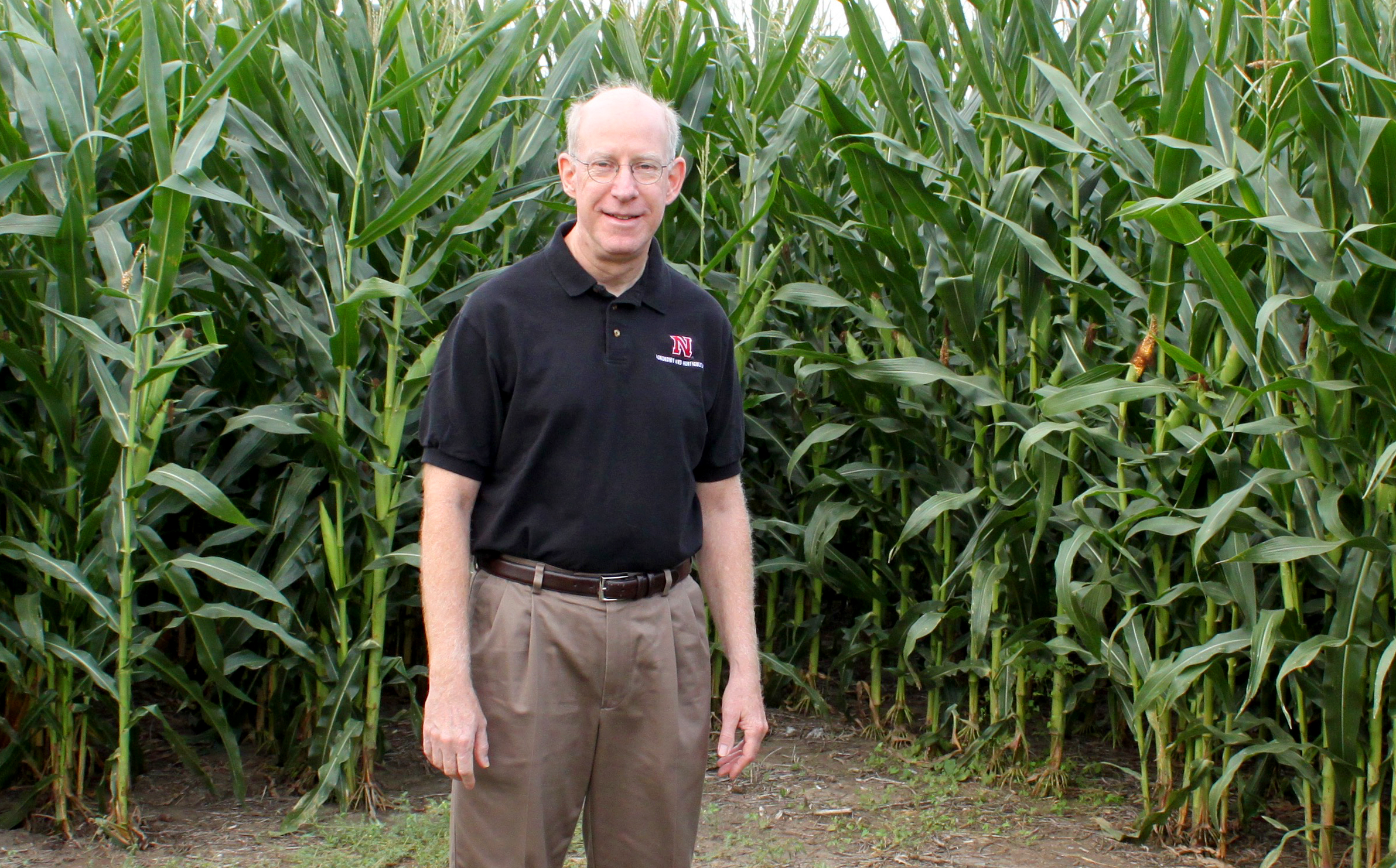
Richard Ferguson, University of Nebraska–Lincoln agronomy and horticulture professor and interim department head, received the Fertilizer Industry Roundtable Recognition Award: Innovative Technologies Advancing the Fertilizer Industry at the Fertilizer Outlook and Technology Conference in New Orleans Nov. 15. The Fertilizer Outlook and Technology Conference is jointly sponsored by the Fertilizer Industry Roundtable and The Fertilizer Institute.
This award recognizes outstanding achievements in research, extension and education that centers on fertilizer technology and associated benefits to agricultural productivity and sustainability. Applicants are judged on research originality, quality and practical application as demonstrated by concrete results, letters of recommendation, dissemination of findings, contribution to sustainability and potential for international application.
While at Nebraska, Ferguson's research has focused on nitrogen management of irrigated maize, especially in areas with groundwater nitrate-N contamination in the Platte River Valley and elsewhere in Nebraska. Throughout much of his career, he has investigated precision agriculture methods to manage N for increased efficiency and reduced N loss to the environment.
Ferguson coordinated two major water quality projects in Nebraska that have had significant impacts on adoption of water quality best management practices – the Mid–Nebraska Water Quality Project and the Platte Valley Nitrogen and Irrigation Demonstration Project.
The Mid–Nebraska Water Quality Project conducted from 1990 to 1998 focused on improved N management practices for irrigated maize. This project involved 11 agencies and organizations and received a total of $1.35 million in federal funding for the Nebraska Extension component of the project. It included 3.5 million acres of cropland and over 35 percent of the corn production area in the state. Through efforts of this project, producers saved $4.18 million annually in reduced N application, with no reduction in yield.
The Platte Valley Nitrogen and Irrigation Demonstration Project began in 1984 and has been conducted in cooperation with the Central Platte Natural Resources District and includes all or parts of five counties in the central Platte River Valley. This project was instrumental in producer acceptance of the first Groundwater Management Area for groundwater quality in Nebraska, resulting in substantial adoption of BMPs by area producers. Between 1988 and 2008, both mean groundwater nitrate-N concentration in the Central Platte Valley and residual soil nitrate-N accumulated in the root zone declined – both indications of increased fertilizer use efficiency and improved environmental quality.
The steady decrease in groundwater nitrate-N concentration in Nebraska's Central Platte River Valley since 1988 is confirmation that integrated N and irrigation management practices can positively impact water quality is a result of the introduction of practices developed by Ferguson, his colleagues and other agencies and organizations in Nebraska.
Project SENSE – Sensors for Efficient Nitrogen Use and Stewardship of the Environment - was initiated with Ferguson's leadership. Combined resources of the University of Nebraska–Lincoln On-Farm Research Network, the Nebraska Corn Board and five Natural Resources Districts are used to conduct research on the use of crop canopy sensors for improved profit and nitrogen-use efficiency in field-scale studies on producer fields. The research component of this project is to identify mechanisms to improve sensor N rate algorithms, primarily by combining soil information with sensor output in Nebraska. Over the first two years of the project, 36 studies were conducted, with increases in NUE, reduced overall N rate, and increased marginal profit for sensor management over standard producer practices. These research results have been incorporated into extension recommendations for producers.
More details at: https://go.unl.edu/ata6